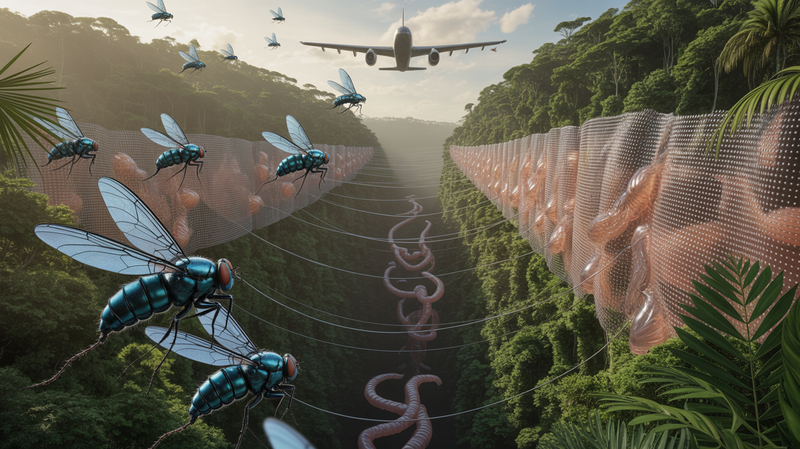The Last Refuge: Fleeing the Digital Panopticon for Nature's Embrace
In the shadow of an encroaching digital dystopia, where social credit systems and omnipresent surveillance reign, many are beginning to envision a radical alternative. The prospect of fleeing the digital panopticon for the sanctuary of nature is not merely a romantic notion, but a desperate call to reclaim our fundamental

In the shadow of an encroaching digital dystopia, where social credit systems and omnipresent surveillance reign, many are beginning to envision a radical alternative. The prospect of fleeing the digital panopticon for the sanctuary of nature is not merely a romantic notion, but a desperate call to reclaim our fundamental freedoms. This article delves into the depths of such a choice: its implications, challenges, and the profound shift in lifestyle it demands.
The Digital Panopticon: A Modern Menace:
We live in an age where our every move, click, and conversation can be monitored and quantified. The rise of the social credit system, particularly in nations like China, has set a precedent for a world where individual behavior is constantly evaluated and scored. This digital oversight extends beyond mere surveillance; it influences access to services, freedom of movement, and even social status. Such a system represents the zenith of the digital panopticon – an invisible prison of data and algorithms, dictating the rhythms of daily life.
The Lure of a Pristine Existence:
Against this backdrop of digital control, the allure of a life intertwined with nature becomes increasingly potent. Imagine a life where the only surveillance comes from the watchful eyes of wildlife, where the rhythms of the day are set by the sun and the seasons, not by notifications and digital prompts. This existence promises a return to the fundamentals of human experience, untainted by the complexities of a data-driven society.
Embracing the Challenges:
Opting for a life in nature is not without its trials. It demands a complete reevaluation of one's priorities and a willingness to embrace skills long forgotten by modern society. This means learning to grow food, to understand the patterns of nature, and to live with the land, not just on it. It also involves a conscious uncoupling from the global economy, finding new ways to barter, trade, and coexist with a community of like-minded individuals.
The Rewards of Simplicity:
For those who take this leap, the rewards can be profound. There is a deep sense of connection with the natural world, a feeling of autonomy and self-reliance that comes from living off the land. The mental clarity found in the absence of constant digital noise is another intangible benefit. This way of life fosters a sense of community and cooperation that is often lost in the individualistic, competition-driven ethos of the digital age.
A Blueprint for Future Generations:
Choosing to escape the digital panopticon by embracing nature is more than a personal decision; it's a statement for future generations. It represents a belief in the enduring value of privacy, freedom, and a balanced relationship with the environment. By forging this path, we create a blueprint for others who might seek refuge from a world overwhelmed by digital surveillance and control.
As the digital panopticon tightens its grip, the escape to nature emerges not just as a fantasy, but as a viable, albeit challenging, alternative. This choice embodies a profound critique of the direction our society is heading and offers a stark reminder of the freedoms we stand to lose. It's a call to reevaluate our relationship with technology, to consider the merits of a simpler life, and to remember that, in the end, our humanity is defined not by our digital footprint, but by our connection to the earth and to each other.




